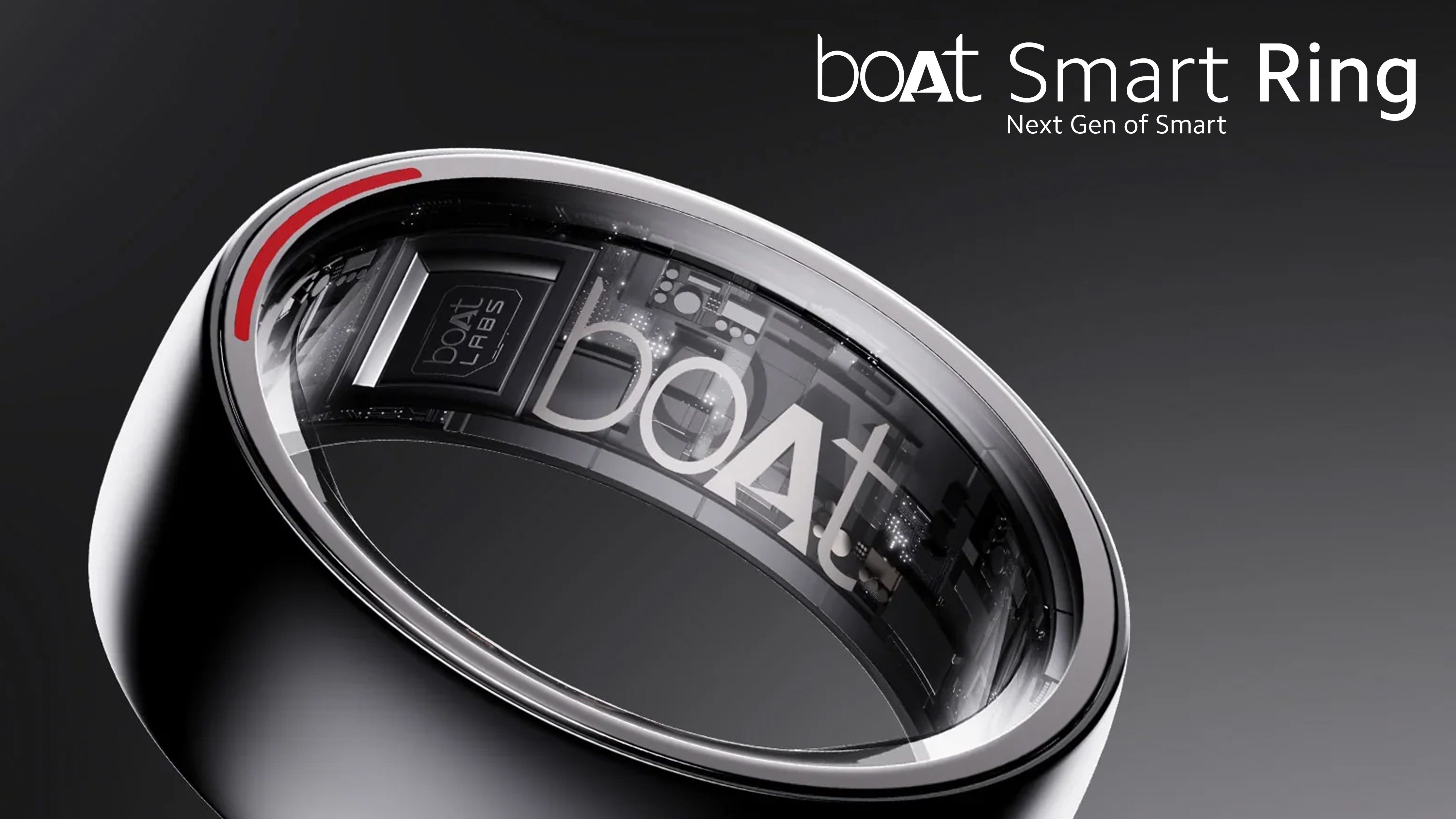Smart Ring Fidelity Test: A New Trend?

Table of Contents
The Technology Behind Smart Ring Fidelity Tests
Some smart rings, marketed with features like fitness tracking or contactless payment, possess capabilities that could be misused for fidelity testing. These features, often intended for benign purposes, raise significant concerns when applied to relationship monitoring. How do these rings work in this context? Essentially, they leverage several technologies to track the wearer's activities and location.
-
GPS tracking capabilities: Many smart rings utilize GPS to record the wearer's location over time. This data could theoretically be used to reconstruct a person's movements and identify potential discrepancies from reported activities. However, GPS accuracy can be affected by environmental factors, potentially leading to false inferences.
-
Bluetooth proximity detection: Smart rings often employ Bluetooth technology to connect with other devices. This proximity detection could be interpreted to show who the wearer is spending time with. However, it cannot definitively establish the nature of the interactions.
-
Integration with social media or communication apps: Some more sophisticated smart rings might integrate with social media or communication apps, allowing for the tracking of interactions and online activity. The ethical implications of this data aggregation are profound.
-
Data analysis and reporting methods: The data collected by the smart ring is then usually processed by an accompanying app or software. This software analyzes the data, potentially identifying patterns that might suggest infidelity. These algorithms are often proprietary and their accuracy is not always transparent.
-
Accuracy limitations of the technology: It's crucial to acknowledge the significant limitations of this technology. GPS signals can be weak or unavailable indoors, Bluetooth detection can be unreliable over long distances, and data interpretation is highly subjective. The possibility of false positives or misinterpretations is very real.
Ethical Concerns and Privacy Implications
The use of smart rings for fidelity testing raises a multitude of ethical concerns and significant privacy implications. The potential for misuse of this technology necessitates careful consideration.
Consent and Transparency
A fundamental ethical issue lies in the lack of informed consent. Using data collected from a smart ring to assess fidelity without the explicit and informed consent of both partners is a serious breach of trust and privacy.
-
Lack of transparency about data collection and usage: Often, the terms of service for smart ring apps don't explicitly address the possibility of using the data for fidelity tracking. This lack of transparency is problematic.
-
Potential for invasion of privacy: The very act of monitoring someone's location and communication patterns without their knowledge or consent constitutes a serious invasion of privacy.
-
Legal ramifications of using such data without consent: Depending on the jurisdiction, using personal data collected from a smart ring without consent could have significant legal ramifications.
Data Security and Breaches
Storing sensitive personal data, such as location history and communication patterns, in a smart ring and associated apps presents significant security vulnerabilities.
-
Risk of hacking and data breaches: Smart rings and related apps are not immune to hacking and data breaches. A successful breach could expose extremely private information.
-
The potential for misuse of the information: Even without a major security breach, data collected from smart rings could be misused by malicious actors.
-
Security measures employed (or lacking) by developers and manufacturers: The security protocols implemented by smart ring developers and manufacturers vary greatly, with some offering better protection than others.
The Societal Impact of Smart Ring Fidelity Tests
The societal impact of smart ring fidelity tests extends far beyond individual relationships.
Erosion of Trust
Even if a smart ring fidelity test produces "clear" results, the very act of employing such technology can significantly damage trust within a relationship.
-
Increased suspicion and paranoia within relationships: Using a smart ring for fidelity monitoring creates an atmosphere of suspicion and distrust, potentially harming the relationship beyond repair.
-
The potential for false positives leading to unnecessary conflict: The inaccuracies inherent in the technology can lead to false accusations and needless conflict.
-
The overall impact on healthy communication within relationships: Instead of fostering open communication, these devices create barriers and undermine healthy dialogue.
Alternatives to Smart Ring Fidelity Tests
Building trust and addressing relationship concerns requires a different approach altogether. Focusing on healthy communication is crucial.
-
Open communication and honest dialogue: Open and honest communication is the cornerstone of a healthy relationship. Addressing concerns directly is far more productive than resorting to technological surveillance.
-
Couples therapy and counseling: Professional help from a couples therapist or counselor can provide valuable tools and strategies for building a stronger relationship.
-
Focus on building a strong foundation of trust: A strong relationship is built on trust, mutual respect, and open communication, not on technological monitoring.
Conclusion
The rise of smart ring fidelity tests presents a complex dilemma. While technology offers potential tools for monitoring various aspects of life, the ethical and privacy implications of using smart rings to assess fidelity are significant. The potential for misuse, inaccuracies, and the erosion of trust outweigh any perceived benefits. Instead of relying on potentially unreliable technology, fostering open communication and building strong, healthy relationships through trust and mutual respect remains paramount. Are smart ring fidelity tests the answer? Ultimately, a healthy relationship requires far more than technological surveillance. Choose healthy communication, not a smart ring fidelity test.

Featured Posts
-
 Power Uprate For Nuclear Reactors Understanding The Nrc Requirements
May 02, 2025
Power Uprate For Nuclear Reactors Understanding The Nrc Requirements
May 02, 2025 -
 Mlw Battle Riot Vii Bobby Fish Joins The Fray
May 02, 2025
Mlw Battle Riot Vii Bobby Fish Joins The Fray
May 02, 2025 -
 Months Long Persistence Of Toxic Chemicals After Ohio Train Derailment
May 02, 2025
Months Long Persistence Of Toxic Chemicals After Ohio Train Derailment
May 02, 2025 -
 Rethinking School Suspensions The Case For Restorative Justice And Positive Discipline
May 02, 2025
Rethinking School Suspensions The Case For Restorative Justice And Positive Discipline
May 02, 2025 -
 Riot Platforms Riot Stock Dips Analyzing The 52 Week Low
May 02, 2025
Riot Platforms Riot Stock Dips Analyzing The 52 Week Low
May 02, 2025
